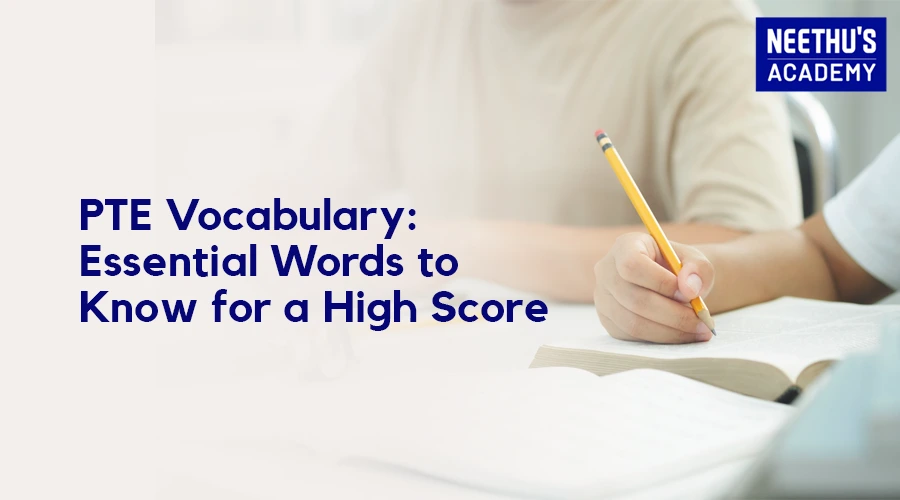Why Enabling Skills Matter: The Impact of Enabling Skills in PTE Academic
The internationally renowned Pearson Test of English Academic (PTE Academic) evaluates a non-native English speaker’s capacity for successful academic communication. The speaking, writing, reading, and listening components of the test are assessed. Encouraging skills are also incorporated within PTE; these are essential for understanding and effectively using English.
Understanding The Role of Enabling Skills in PTE
Grammar, oral fluency, pronunciation, spelling, vocabulary, and writing discourse are essential parts that reinforce the primary language abilities. They are necessary for comprehending and precisely conveying concepts. The fundamental competencies and proficiencies required for proficient communication and understanding across a range of settings are referred to as enabling skills in PTE. Language proficiency exams and other assessments of a similar nature usually evaluate these abilities.
- Listening Comprehension: This skill involves the ability to understand spoken language, including details, main ideas, and overall messages. It encompasses skills such as identifying specific information, recognizing relationships between ideas, and inferring meaning.
- Reading Comprehension: This skill involves the ability to understand written texts, including their main ideas, details, and inferred meanings. It may also involve tasks like identifying specific information, making inferences, and understanding the structure and organization of a text.
- Speaking Fluency: This skill refers to the ability to communicate orally in a smooth, continuous, and natural manner. It involves factors like pronunciation, intonation, pacing, and the ability to maintain a conversation.
- Speaking Coherence and Cohesion: This skill involves the ability to organize and link ideas in spoken language. It includes using appropriate connectors, structuring responses logically, and ensuring that ideas flow smoothly.
- Writing Coherence and Cohesion: Similar to speaking, this skill pertains to the organization and connection of ideas, but in written form. It involves using appropriate transitions, structuring paragraphs effectively, and ensuring the overall flow of the text.
- Writing Accuracy: This skill focuses on the correctness of written language, including grammar, spelling, punctuation, and vocabulary usage.
- Vocabulary Range and Accuracy: This skill assesses the breadth and precision of a person’s vocabulary. It includes the ability to use a variety of words appropriately and accurately.
- Grammatical Range and Accuracy: This skill evaluates a person’s command of grammar, including the ability to use a range of structures accurately and appropriately.
- Pronunciation: This skill involves the ability to produce sounds, stress, and intonation patterns of a language in a way that is easily understood by others.
- Interactive Communication: This skill assesses the ability to participate effectively in conversations, discussions, and other interactive tasks. It includes skills like initiating and responding to communication, negotiating meaning, and maintaining a conversation.
The Impact of Enabling Skills on PTE Academic Scores
In the PTE (Pearson Test of English) exam, enabling skills play a significant role in determining the overall score. Enabling skills scores in this scoring system are determined by completing particular tasks that evaluate these skills. The range of scores for each skill is 10–90 points. For the overall PTE score, all scores under Enabling Skills are added, and the total is divided by 6. The average of this is added along with the four communicative skills scores. The average of these 5 parts together is taken as the overall PTE score. To gain points for the enabling abilities, responses must be appropriate in both form and content. For instance, if the test-taker talks about social issues during a task that calls for recounting a lecture about family, they will not be awarded any points for enabling skills.
The scoring system assesses the response’s form after assigning a point for its content. Points will be given for responding in accordance with the length criteria, and the response will be graded according to the enabling skills and other attributes displayed. It is important to remember that this entire procedure contributes to the total overall score.
Content: Content refers to the relevance and appropriateness of the response to the given task. If the content is accurate and addresses the prompt effectively, it contributes positively to the overall score.
Form: Form relates to the structure and organization of the response. This includes factors like paragraph development, sentence structure, and overall coherence. Meeting form requirements can lead to additional points.
Enabling Skills: Each of the enabling skills (listening, reading, speaking, and writing) is assessed separately. Performance in these areas contributes to the corresponding skill scores. These skill scores are then combined to form the enabling skills scores, which are reflected in the score report.
- Listening and Reading: These skills are assessed through multiple-choice questions, summarizing information, and other tasks. Your performance in these sections contributes to your listening and reading-enabling skill scores.
- Speaking: This skill is evaluated through tasks like reading aloud, repeating sentences, describing images, and giving short answers. Your performance in these tasks contributes to your speaking-enabling skill score.
- Writing: This skill is assessed through tasks like summarizing written text, writing essays, and completing sentences. Your performance in these tasks contributes to your writing-enabling skill score.
- Vocabulary and Grammar: While not explicitly mentioned as “enabling skills,” proficiency in these areas is crucial for success in all sections of the test. Strong vocabulary and grammar usage contribute to higher scores in both content and form.
- Overall Score Calculation: After assessing content, form, and enabling skills, the scores are calculated and combined to form the overall PTE score. This score reflects your overall proficiency in English language communication.
Enabling skills in PTE are crucial for effective communication in English. It’s important to recognize that various language assessments may place different levels of emphasis on enabling skills. This can impact the preparation and strategies one employs when aiming for success in a particular test. It’s important to understand the specific requirements of enabling skills in PTE in order to prepare effectively. They are the bedrock of effective English communication and play a pivotal role in the evaluation process of PTE enabling skill scores. A comprehensive understanding of grammar, vocabulary, oral fluency, pronunciation, spelling, and written discourse is essential for achieving a high score on PTE enabling skills score in the test. Moreover, these skills have far-reaching implications for academic and professional success, making them a critical focus for any individual aiming to excel in English proficiency assessments like PTE Academic. So, embrace these enabling skills to unlock your full potential in the world of English language proficiency.





